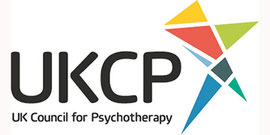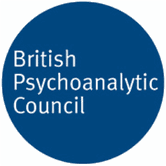Adam Sandler’s workaholic character Michael Newman, the protagonist of Click, is already avoiding unwanted and humdrum parts of his life by overworking when a mystical man called Marty gives him a magical remote control that allows him to bypass mundane and frustrating everyday experiences. With the push of a button, he can now skip arguments with his wife, boring family meals, and other uncomfortable moments, and fast-forward to his promotion.
Initially, Michael believes this device gives him control over his life, but he soon realizes the opposite is true—the remote begins skipping time without his consent. No matter how much he tries to get rid of it, the remote keeps reappearing, attached in some way to his body, symbolising an externalised unconscious part of himself that instinctively seeks to avoid discomfort. In doing so, Michael loses connection with his loved ones, his health declines, and life speeds past him while he remains emotionally absent.
This narrative serves as a compelling metaphor for the way we handle negative thoughts and feelings in a fast-paced, goal-oriented world focused on action, achievement, and material gain. In a society that celebrates "positive thinking," there is immense pressure to dismiss or suppress difficult emotions. Gabor Maté, in his book When the Body Says No, challenges this mindset, arguing that wellbeing requires confronting the full truth of our emotional reality. As he puts it:
What I really believe in is the power of thinking. As soon as we qualify the word thinking with the adjective positive, we exclude those parts of reality that strike us as 'negative.'
Maté suggests that a fixation on positivity prevents us from acknowledging what is out of balance in our lives. When we avoid our true array of emotions, we increase our stress and diminish our capacity for self-awareness and autonomy. He explains, "Genuine positive thinking begins by including all our reality. It is guided by the confidence that we can trust ourselves to face the full truth, whatever that full truth may turn out to be."
Just as Michael in Click numbs himself to the difficult moments in his life, many of us fall into the trap of avoiding painful emotions, as if ignoring them will make them magically disappear. However, the opposite is true: pushing troubling thoughts, feelings, and experiences out of awareness leads to disconnection and despondency.
To truly heal, Maté argues, we must ask ourselves difficult questions about what is not working in our lives. Denying our pain is a major source of stress, and only through self-exploration can we reduce it. He boldly states, "In order to heal, it is essential to gather the strength to think negatively." This does not mean dwelling in pessimism but rather removing the "rose-coloured glasses" that prevent us from seeing reality as it is.
Much like the ghosts in A Christmas Carol force Scrooge to confront his past, present, and future, Click's Morty—the so-called "Angel of Death"—guides Michael through a painful journey of self-discovery. The film, therefore, serves as a metaphor for the therapeutic process: to reclaim our lives, we must be willing to face the difficult truths, uncomfortable feelings, and mundane experiences we would rather avoid.
Click and Gabor Maté's work both highlight an essential truth: avoiding discomfort only leads to greater suffering. Michael’s misguided attempt to fast-forward through troubling times robs him not only of meaningful connection with his family but of life itself, just as ignoring negative thoughts and emotions robs us of connection with our true selves and our capacity to feel alive.
Real healing and fulfilment come from embracing our full reality, both the light and the dark. By allowing ourselves to engage with difficult emotions and “think negatively,” we reclaim our autonomy, deepen our relationships, and live more meaningful lives. Instead of skipping through the hard parts, we must be present for all of it—because, in the end, the moments we try to avoid may be the most important ones of all.
References:
· Click (2006) Frank Coraci
· Dr Gabor Mate (2019) When the Body Says No: The Cost of Hidden Stress (Vermilion)



